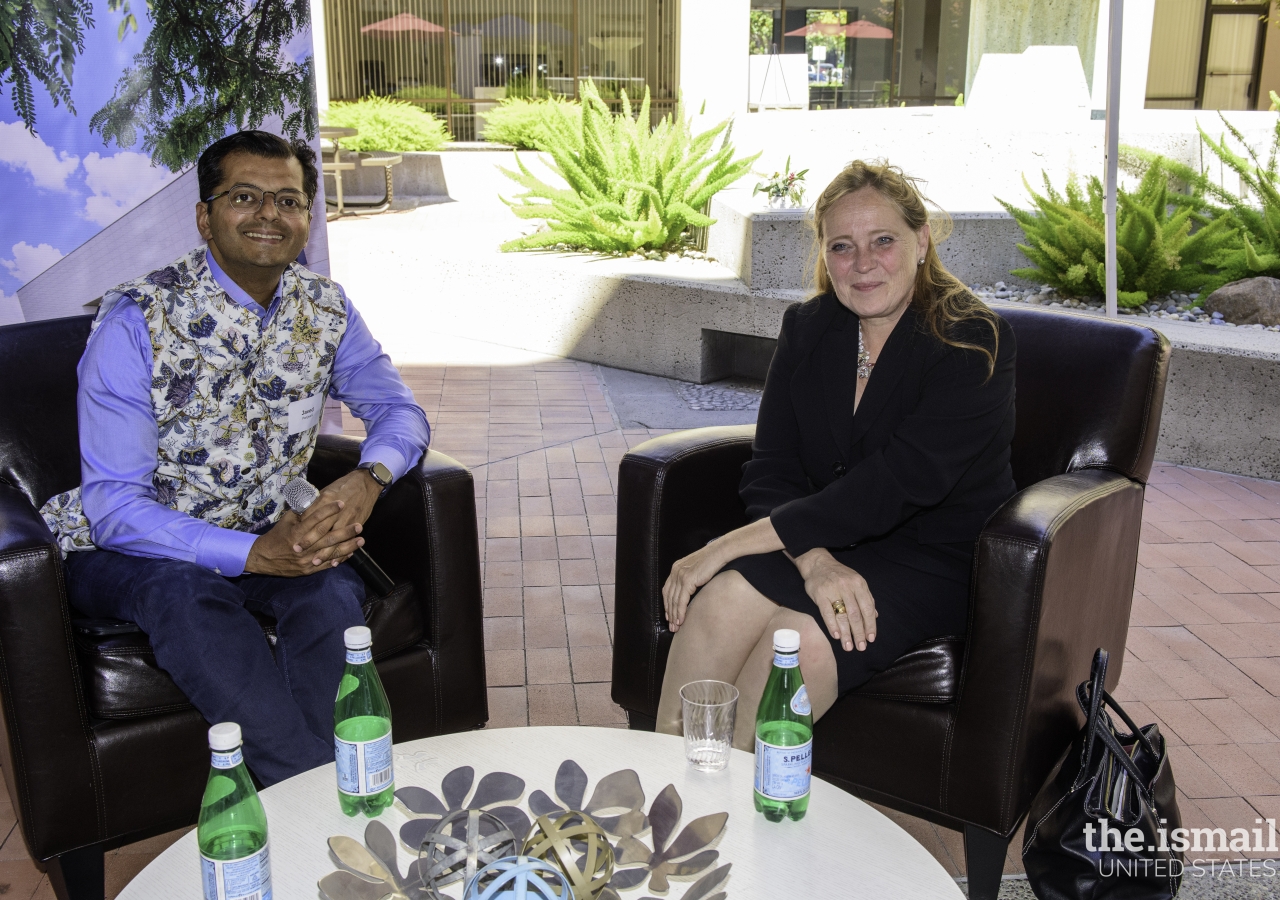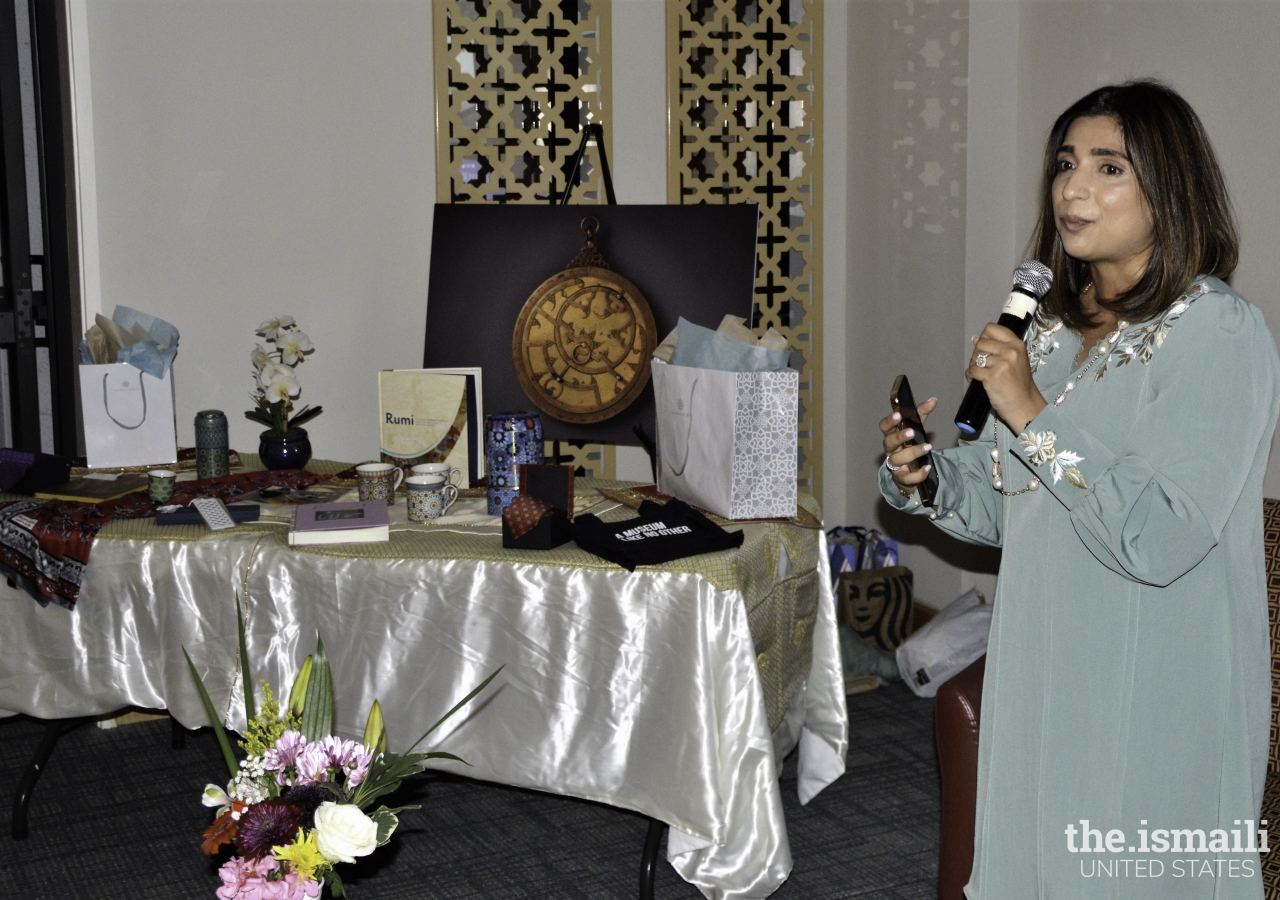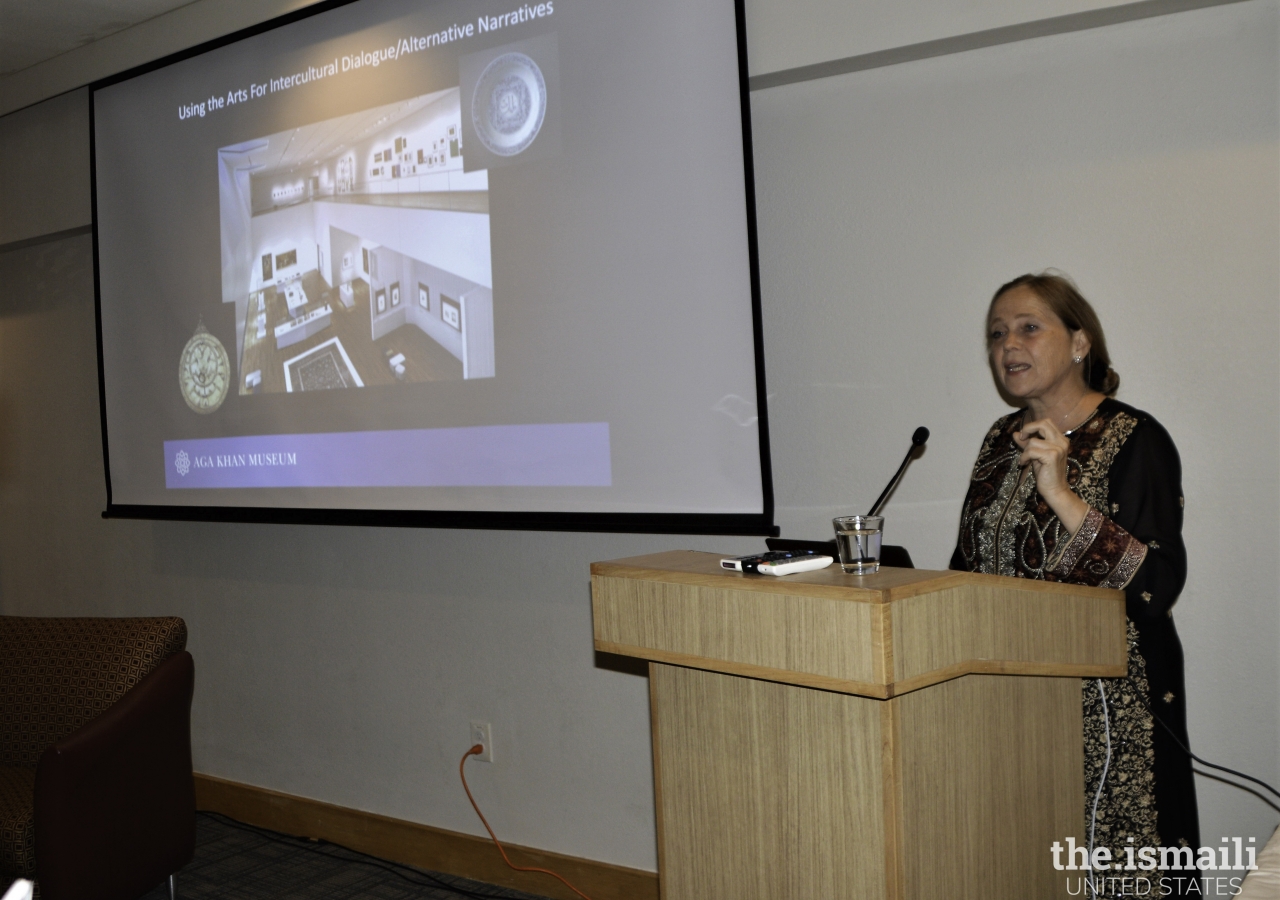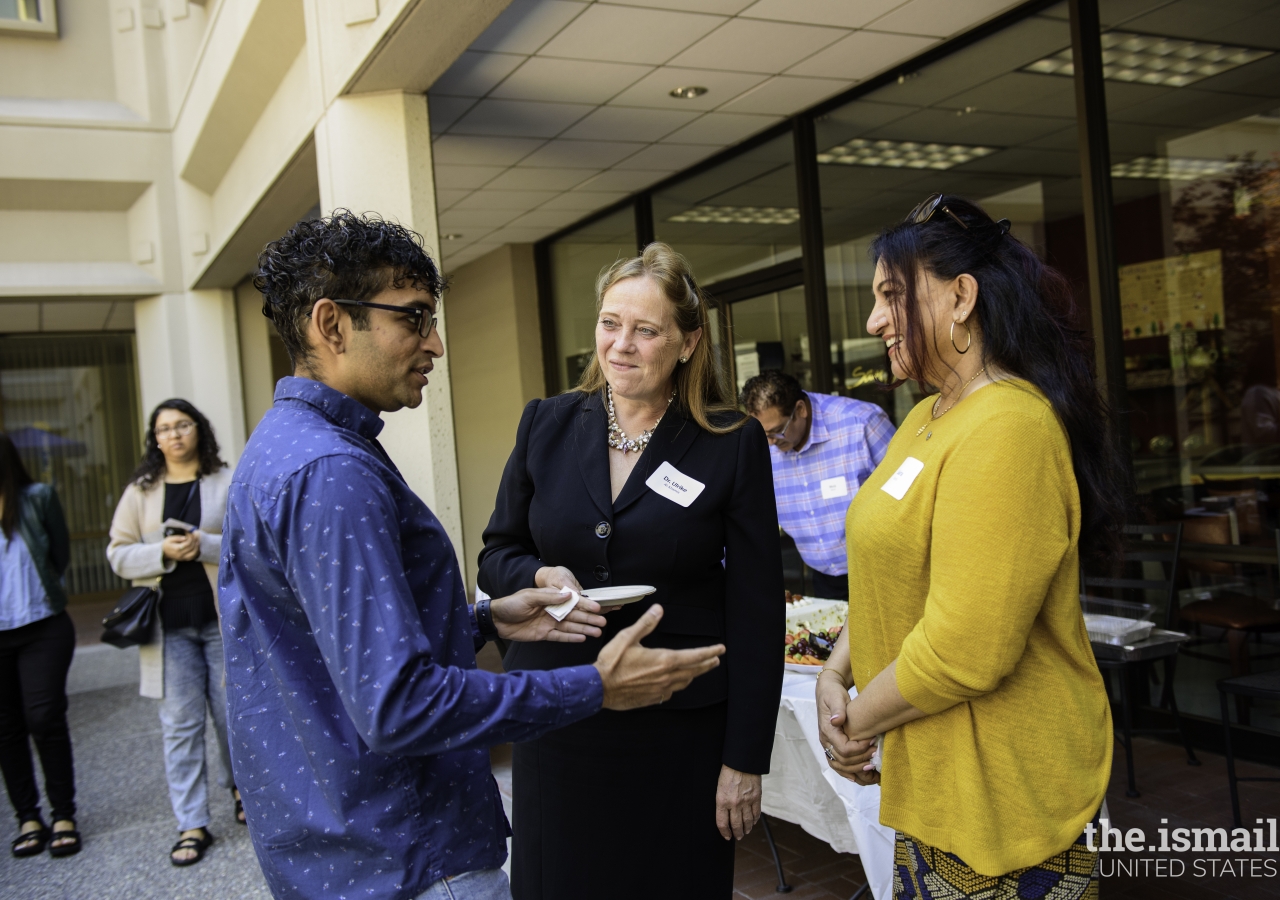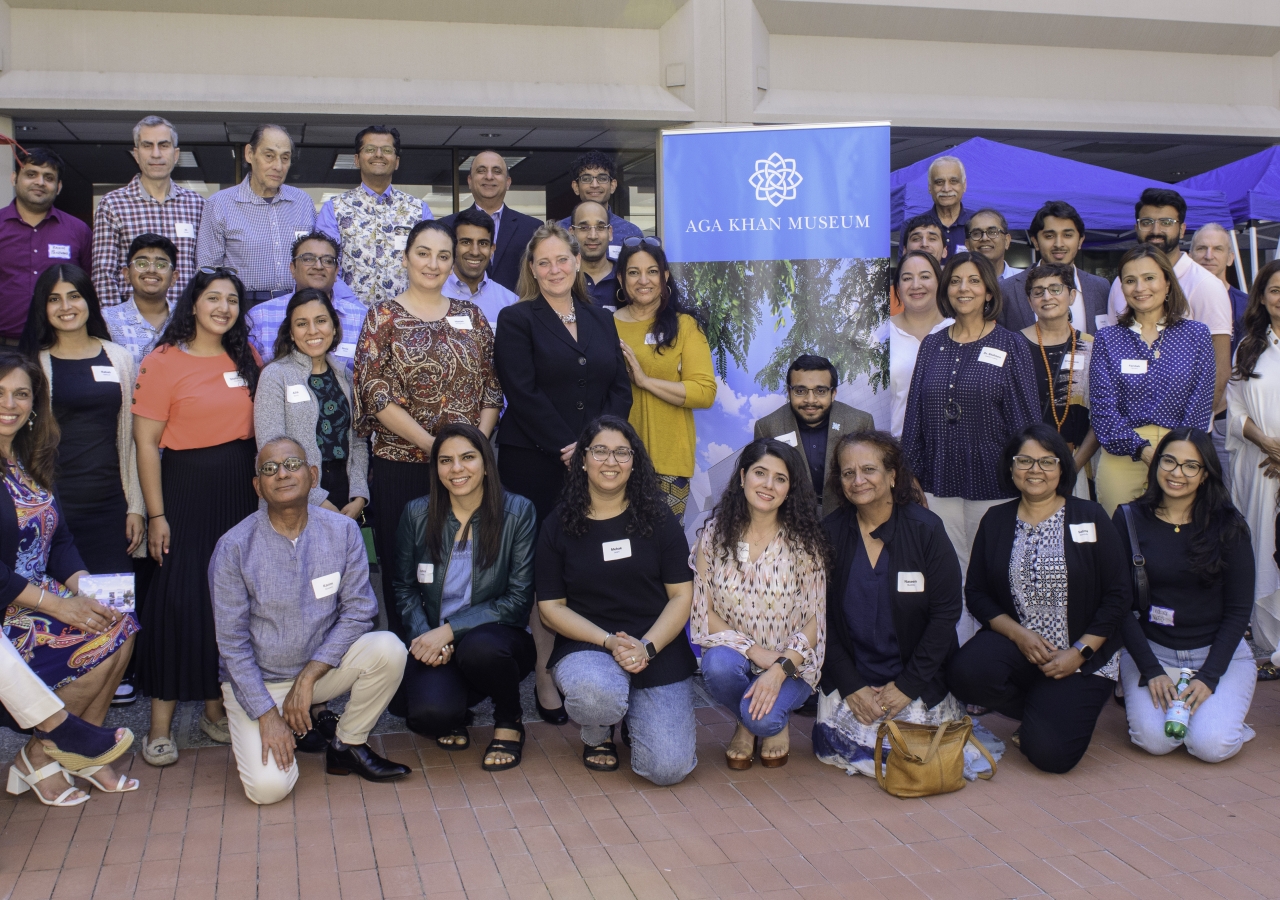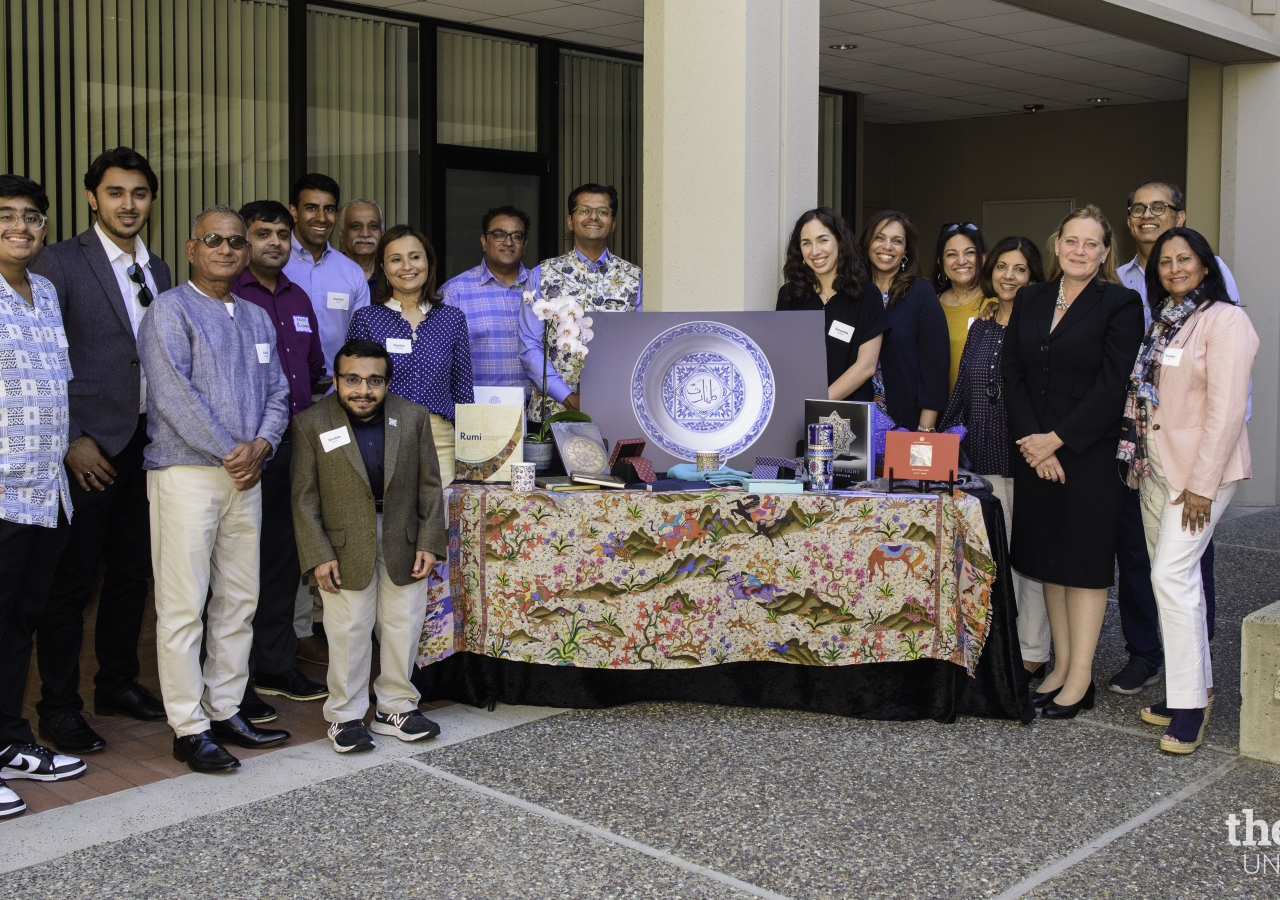Art and culture were the topics of conversation all weekend as the Bay Area Jamats immersed themselves in the rich world of Museum life with Dr. Ulrike Al-Khamis, Aga Khan Museum Director and CEO.
We were fortunate to have multiple opportunities over the weekend to view Museum items, learn from, and speak with Dr. Al-Khamis, as well as representatives of the Museum’s Development Team, during their visit to the Bay, which was a stop on their U.S.A. Patrons’ Drive tour between August 4 and 6, 2023
Image 1
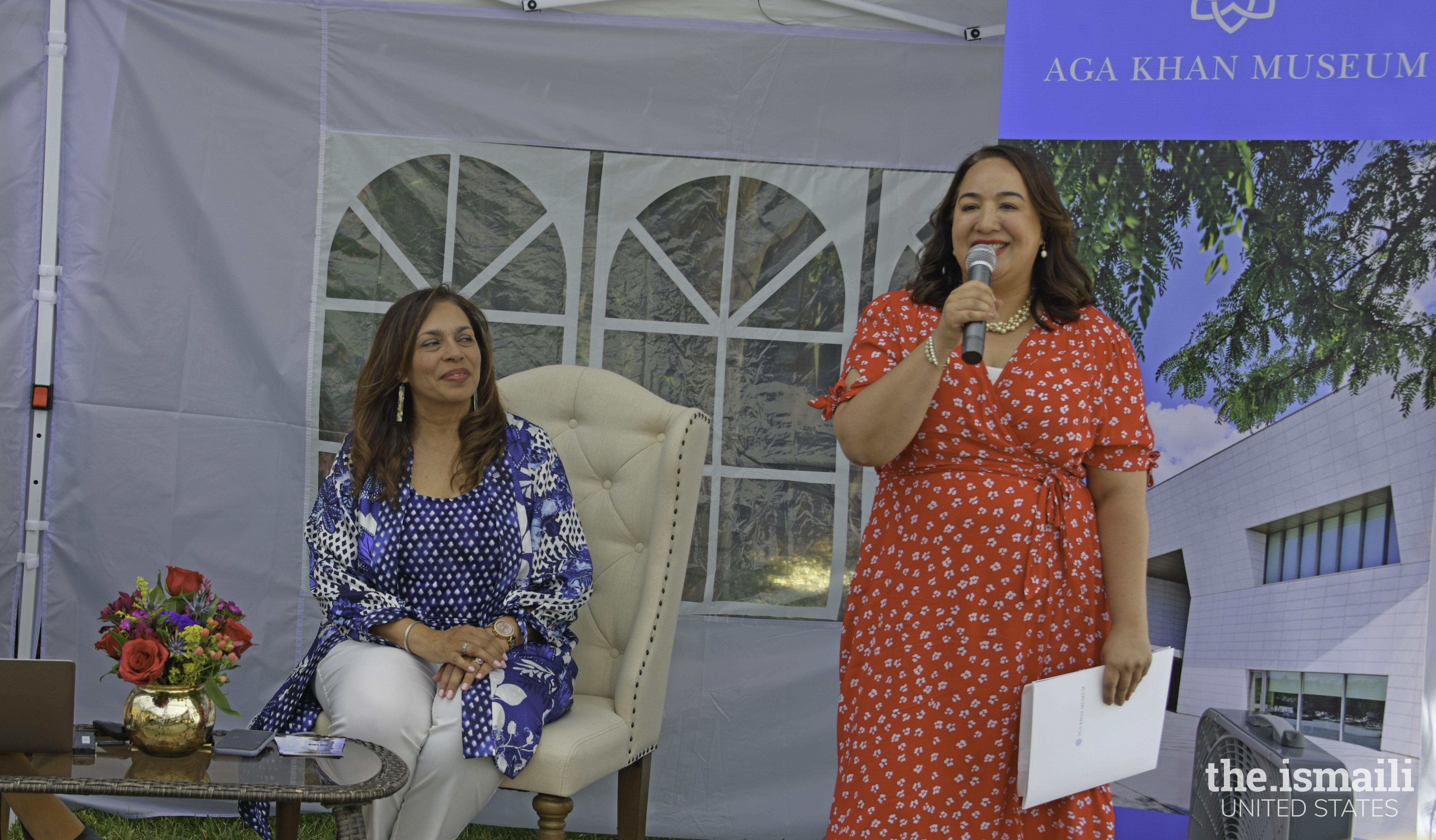
The weekend started off with a presentation at Santa Clara Jamatkhana by Dr. Al-Khamis. She explained how the museum provides us with a way to connect modern-day life with the stories and achievements of Muslim civilizations across history. For example, the algorithms so familiar to us today through the world of computers go back to the contributions of Muslim mathematician and scientist Muhammad ibn Musa al-Kharizmi.
At the Museum, such algorithms will be featured in an upcoming Museum exhibition, Night in the Garden of Love by British-Pakistani contemporary artist Shezad Dawood. Helping us, and especially young people, to find contemporary relevance in Islamic history strengthens our identity as Muslims and increases our confidence in articulating our multiple levels of identity.
On the next day, Dr. Al-Khamis sat for a Q&A session during an IPN (Ismaili Professionals Network) event. Moderator Javed Panjwani asked her to share the story of her impressive 30-year (and counting!) career. She joked that when she first started out as an art historian, some people around her were concerned about how she would be able to make a living with a career in art and museology, but her mother encouraged her to follow her passion. The comments received knowing smiles from university students studying in Silicon Valley and young professionals living here, primarily employed in the technology sector and rather far from the arts in their careers.
As an educator, what stood out to me as Dr. Al-Khamis shared the highlights of her career thus far, was how chance had always played a role in her career. It reminded me of the career theory ‘Planned Happenstance,’ first proposed by Career Counselor Kathleen Mitchell. It seemed that professional opportunities presented themselves to Dr. Al-Khamis, in part because she was prepared for them.
Lastly, a generous family hosted the Museum Team and a small group of donors for a Sunday brunch, at which Dr. Al-Khamis spoke about several of the Museum’s current public programming initiatives, including the Rhythms of Canada Festival, art and photography installations in the Aga Khan Park, educational programs for students, and diverse online content and resources including the Museum podcast, This Being Human.
Image 4
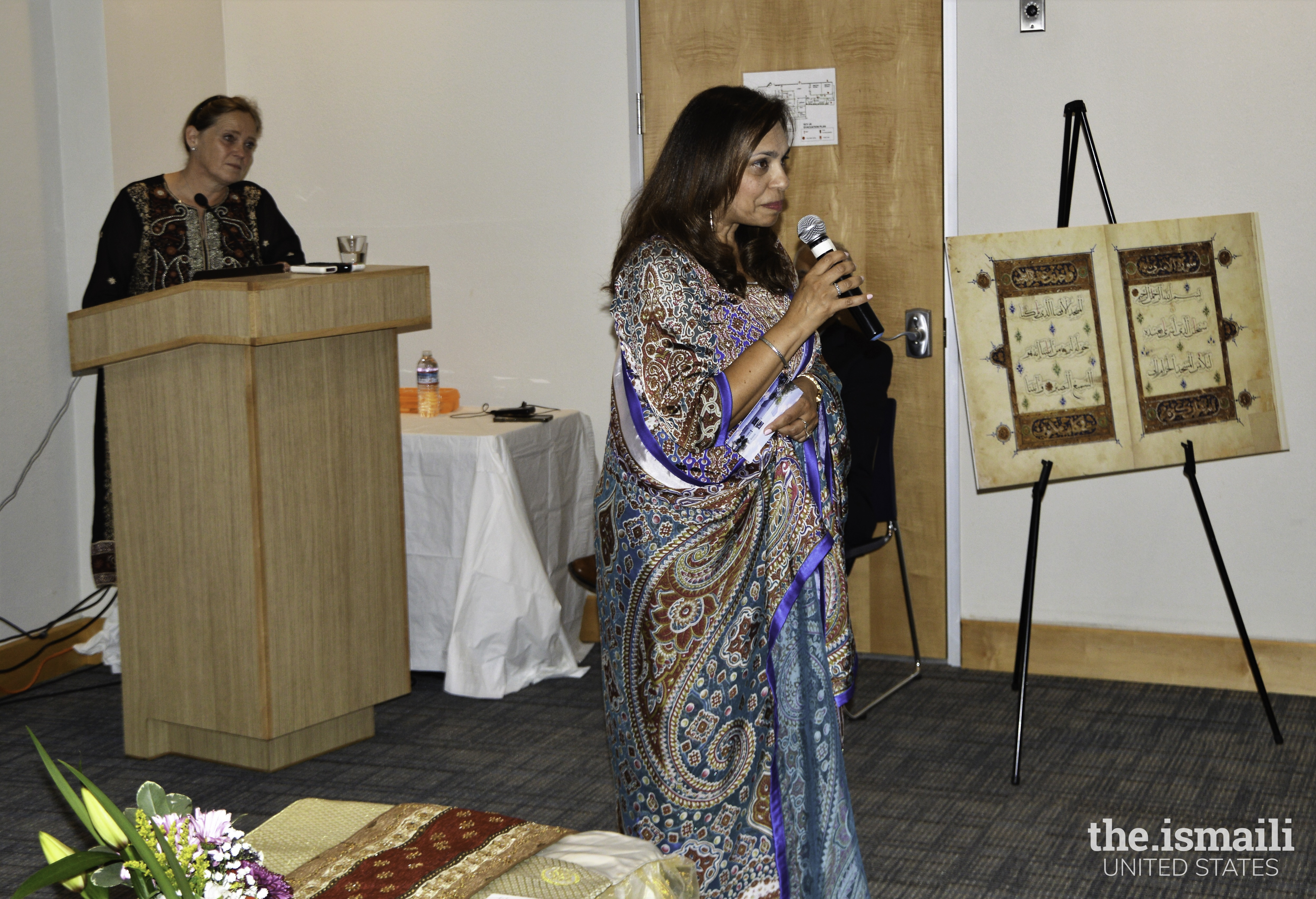
In her talk to the donors, Dr. Al-Khamis circled back to a theme she had already touched on Friday night. When talking about the Museum’s permanent collection of 1200 objects that are “doing the hard work as an engine for learning and intercultural understanding,” she also noted these objects help “build a bridge between the past and the present”. This is important because she pointed out that “in public perception, the narrative about the contributions and achievements of Muslim civilizations only happens in the past.”
The Director went on to say that people may know about the Fatimid period and the Golden Age of Islam, but nothing about the ongoing, contemporary contributions of Muslims the world over, and we need a counter-narrative to adverse media narratives. “It’s crucial that we continue these stories that we have of the past into the present”.
The Aga Khan Museum’s vision of impacting lives and contributing to more inclusive and peaceful societies would not be possible without support from its members—the U.S.A. Jamat is invited to partner with the Museum by becoming a Patron. For more information about joining the Patrons’ Circle, please visit agakhanmuseum.org/uspatrondrive or call 416.646.4677.

